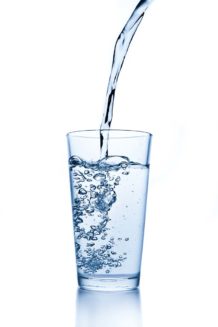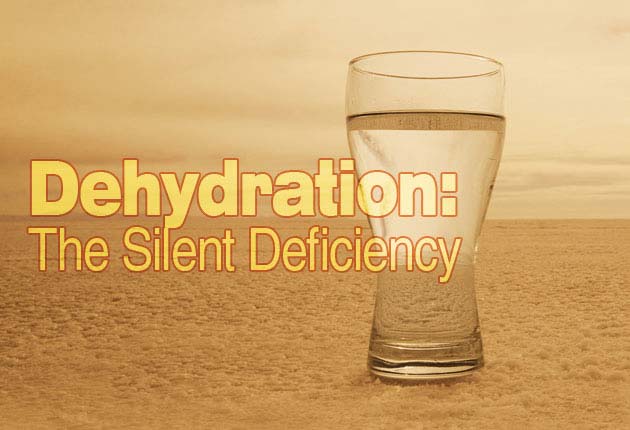Could there be a link between dehydration and dementia? Depression? And other illnesses?
The brain is 75% water!
Symptoms of dehydration
When a senior is mildly dehydrated they will experience symptoms such as:
- Tiredness, sleepiness, laziness, fatigue, lack of energy
- Confusion
- Forgetfulness
- Difficulty concentrating
- Difficulty making decisions
- Dizziness and/or light-headedness
- Irritability and/or agitation
- Headaches
- Constipation
- Dry skin
- Muscle cramps
- Little urine (yellow urine)
- Dry, sticky mouth
- Overeating or appetite loss
The symptoms of dehydration are strikingly similar to the symptoms of dementia and depression.
Dementia symptoms
- Forgetfulness, memory loss
- Poor decision making
- Confusion
- Dizziness—inability to balance properly—affects motor skills
- Tiredness, fatigue, low energy
- Irritability
- Depression
- Poor communication
Depression symptoms
- Difficulty concentrating
- Fatigue, little energy
- Overeating or appetite loss
- Irritability
- Muscle aches and cramps
- Headaches
- Digestive issues—constipation
Are you seeing the similarities?
Is it really dementia or could it be dehydration?
Reading this, many questions come to mind. But these are the key ones that I find important:
- Are dementia patients properly diagnosed?
- Are we being properly diagnosed with other ailments?
- Why do doctors and medical advisors stress the vital importance that medications be taken, but only briefly remind us to stay hydrated and drink plenty of water?
- How much is plenty? And why do I need to stay hydrated?
I do not see these things commonly being taught to patients.
A common phrase after seeing the doctor or nurse is, “And remember to stay hydrated.” This phrase commonly ends the discussion, after spending one minute max talking about water. However, how much time is spent on the point that you must take your medication?
Now, I am not saying that one should not take their medications or that they are bad. What I am witnessing is a blind spot in the system for which no one is at fault. That blind spot is proper education about water. If our seniors, adults, and children were properly educated on drinking water then our health would increase and less medication would be administered as a result.
Water is a key to health

Water is one of the key foundations to all of life, and yet it is not heavily reviewed until one is severely dehydrated and hospitalized. If water is a key foundation, then that means it is the first thing that should be reviewed when diagnosing someone’s health.
Our doctors, nurses, and other medical providers are wonderful people who really want to help. But sometimes, the simplest thing is overlooked. This brings up areas of sociology for me, which prompts me to question how have doctors and nurses alike been taught to teach us about our health? Did our predecessors enforce the importance of drinking water? Do our universities cover this? Do medical boards and hospitals cover this? Are our nurses and doctors also suffering from dehydration due to a lack of education in the system?
One issue I see at the hospital
Nurses are following protocol—those that need IVs receive them for hydration. However, it is a rare occasion that a patient is encouraged to drink a lot of water and given an explanation as to why this is important. Instead, the aides are serving sugary drinks and soda pop, which dehydrates the body. Where is the education on proper hydration?
What if seniors actually started to drink the required amount of water everyday? Would many of their symptoms go away? We have witnessed a massive improvement with our clients because we support them to drink lots of water.
Dehydration can cause memory loss
For example, let’s review Dementia again. The first symptom of a dehydrated brain is memory loss, which is the main symptom of Dementia. Especially when a brain has been chronically dehydrated for years. When we are 30, 40, or 50 our brains are still functioning—a plant wilts without water slowly, but over time there is no turning back and the plant has lost too many cells to function and will die. But as you feed that plant sufficient water, the leaves turn green and lift back up into life again. Humans are no different.
Seniors are at a higher risk for dehydration
What is important to remember is that seniors are at higher risk of dehydration and they do not receive the proper support to drink because our society is not educated on the vital importance of it. Instead, our society is bombarded with information from ads and commercials that push sugary, dehydrating drinks.
Are you seeing what I am seeing? How can we get out of this cycle?
Just like taking a first step as a baby, we will stumble and sometimes fall. However, the baby doesn’t get mad—it is determined and excited about being able to walk. And soon, it walks with ease and grace.
Two liters of water a day may cure what ails you
The key here is SUPPORT. Let’s make it a simple goal to drink 2 liters of water a day. Keep a 2 liter jug of water in the fridge and make sure that your parent or client drinks the whole 2 liters. There may be some fussing at first. Change is not always welcomed. But the results are guaranteed! Let’s continuously ask our friends, family members, patients, “How much water have you had today?”
Once a senior or average adult has been properly hydrated, then let’s see what symptoms there are to be able to properly diagnose them. We’ve been relying largely on medication and the health of our society is still declining. Isn’t this a key sign that our current system is not working?
